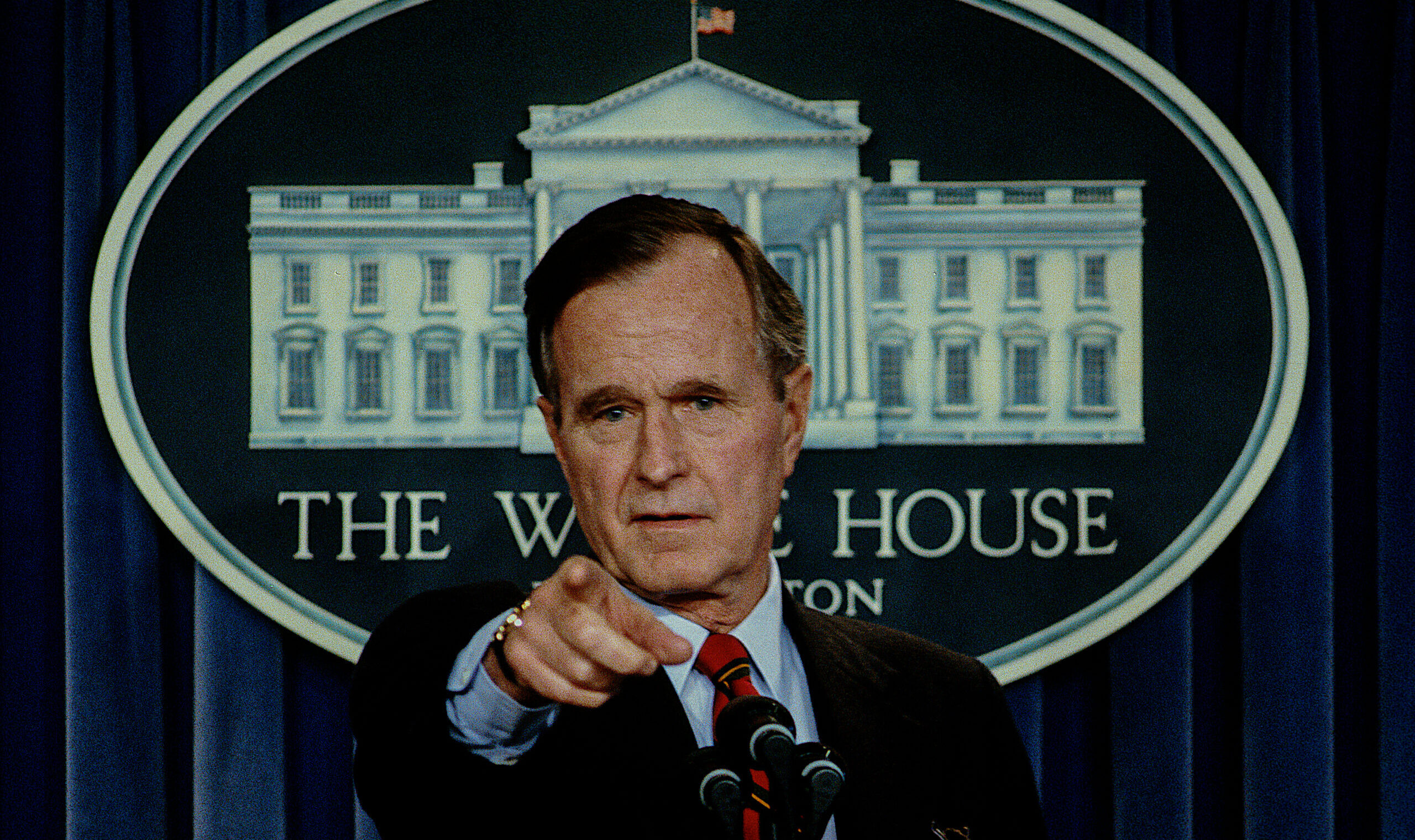
www.theamericanconservative.com
Will Trump Betray America First?
Uncategorized
Will Trump Betray America First?
The president seems on the verge of breaking key promises to the American people.
Israel’s attack on Iran has left the Trump administration’s reputation no less damaged than the Islamic Republic’s capital. President Donald Trump’s enthusiastic embrace of the Israeli operation has betrayed his professed commitment to America first. And there are increasing fears that he will yield to the Netanyahu government’s pleading that the U.S. salvage an operation that opened dramatically but nevertheless fell short of disabling Iran’s nuclear program. Entering yet another endless war in the Middle East is not going to make America great again.
Secretary of State Marco Rubio prevaricated when he asserted that the conflict was Israel’s, not America’s responsibility—“We are not involved in strikes against Iran,” he declared. To start, Trump repeatedly threatened U.S. military action and before the attack dismissed concern about Israeli Prime Minister Benjamin Netanyahu’s attempt to push Americans into attacking Iran by noting: “I may go in very willingly if we can’t get a deal. If we don’t make a deal, I’ll be leading the pack.”
Moreover, speaking anonymously, Israeli officials insisted that Trump was a willing accomplice: “Israel and the U.S. carried out a multi-faceted misinformation campaign in recent days to convince Iran that a strike on its nuclear facilities was not imminent,” said one. He reported that Trump “was an active participant in the ruse and knew about the military operation since Prime Minister Benjamin Netanyahu decided to move forward with the strike.” This deception campaign, assuming it occurred, surely enhanced the success of Israel’s first strikes. Explained the Quincy Institute for Responsible Statecraft’s Trita Parsi: “Caught off guard by the assumption that Israel wouldn’t act before the sixth round of nuclear talks, Iranian leaders had taken no precautions. Many were asleep in their homes in northern Tehran, alongside their families, when Israeli strikes killed them in their beds.” Finally, the U.S. president claimed the operation as his own, calling it “excellent” and stating that “We gave them a chance and they didn’t take it” (emphasis added).
Still, a consensus seems to be developing that the “ruse” narrative is overblown, and that Netanyahu acted when he did to preempt America’s continued negotiations with Iran. Although Iranian officials have since indicated a willingness to revive talks, Tehran cannot now make concessions without effectively accepting Trump’s new demand for “unconditional surrender.” Indeed, noted one unnamed Arab diplomat, “Israel just killed their negotiators”—Ali Shamkhani, the aide to Supreme Leader Ayatollah Khamenei who was overseeing the talks, was killed in an airstrike. Moreover, Israel has conclusively demonstrated that Iran’s hardliners were right: Tehran needs nukes as a deterrent, giving its leaders an incentive to at least preserve the option if not race for a nuclear weapon whatever the costs.
Moreover, Netanyahu has done nothing to suggest that he is prepared to halt his attack and allow diplomacy, which he had opposed, to move forward. Indeed, the breadth of Israel’s attacks suggests that Netanyahu is determined to destroy Iran’s regime as well as its nuclear program. Of course, eliminating the repressive, radical regime that has misruled this ancient civilization for more than four decades would be good riddance. Alas, there is no reason to assume that the good guys would triumph in the ensuing power struggle. If not, the exchange of military strikes, however unbalanced, could continue indefinitely—imagine a war of attrition of sorts. Worse might be collapse and civil war in a nation of around 92 million, roughly four times Iraq’s population, with loose nuclear materials and more.
The administration appears ready to make Israel’s cause its own, even though Iran is of little importance to the U.S. Notably, Washington itself set the stage for the Islamic revolution by joining the United Kingdom to support the coup that brought the figurehead Shah, Mohammad Reza Pahlavi, to power and then helped sustain his authoritarian rule. Although he promoted social liberalization, notably regarding the status of women, he was an old-fashioned dictator who imprisoned and tortured his critics. After the Shah’s ouster Washington backed a bloody but unsuccessful invasion of Iran by Iraqi President Saddam Hussein—the same Saddam Hussein who later attempted to swallow Kuwait as well.
Through all this, the Islamic Republic posed no threat to America, which possessed overwhelming military power, including a devastating nuclear deterrent. The U.S. encircled Iran with allies, bases, and weapons. Israel, a regional superpower, was also capable of deterring Iran. Moreover, the U.S. armed Saudi Arabia and the United Arab Emirates—once labeled “America’s Sparta”—against Tehran. Iran was the vulnerable power, seeking to develop an asymmetric deterrent. Despite Tehran’s brutal domestic repression and splenetic foreign posturing, it was a pragmatic disruptor, focused on regime survival. Indeed, it proved to be less oppressive and aggressive than Riyadh.
Although Iran’s nuclear program was begun by Washington’s ally, the Shah, U.S. intelligence agencies affirmed that Tehran had abandoned its nuclear weapons program. The Obama administration then negotiated the Joint Comprehensive Plan of Action (JCPOA), which sharply limited Iran’s nuclear activities. However, Trump, who was evidently ignorant of the agreement’s actual terms, withdrew from what he termed the “worst deal ever.” With no replacement, he reimposed sanctions and awaited Tehran’s capitulation, which predictably never came. After all, while then-Secretary of State Mike Pompeo had essentially demanded Iran’s surrender, Tehran had no reason to believe a future president would keep any agreement Trump signed.
Instead, Iran restarted its nuclear activities, which continued throughout the Biden administration (which also did nothing). Both Israel and Saudi Arabia had long urged the U.S. to attack their neighbor. Both were generously prepared to fight to the last American. The Saudis were particularly persistent and overt; the Israelis appeared to have a bit more regard for U.S. public opinion. Today, Saudi Arabia has eased tensions with Iran, while Israel is acting with reckless abandon.
Israel’s attack last week offers more evidence why preventive wars can rarely be justified. Anyone claiming to look into Iran’s future and see it committing self-immolation by launching a nuclear attack on Israel is spinning fantasy, not describing reality. Jerusalem possesses a decisive nuclear deterrent, and Tehran’s rulers have shown no interest in committing collective suicide. Netanyahu’s charge that Iran was approaching an irreversible breakout was fake news. He long expected the U.S. to act, irrespective of the state of the former’s nuclear program. His plans came to fruition since Trump proved to be, if not an open door for Israel’s belligerent campaign, at least an unlocked one that Israel could push through.
Iran had preserved a path to nuclear weapons, but observers dismiss Israel’s claim of immediate danger. “Those in favor of this attack, including Israel, are going to do everything they can to try to make it look like Iran was on precipice of a bomb,” argued Rosemary Kelanic of Defense Priorities: “But we need to be really critical in our thinking.” Trump’s Director of National Intelligence, Tulsi Gabbard, testified in March that intelligence agencies continued “to assess that Iran is not building a nuclear weapon and Supreme Leader [Ayatollah Ali] Khamenei has not authorized the nuclear weapons program that he suspended in 2003.” The New York Times reported: “Contrary to Israeli claims, senior administration officials were unaware of any new intelligence showing that the Iranians were rushing to build a nuclear bomb—a move that would justify a pre-emptive strike.”
In any case, there was obviously nothing justifying an immediate attack that ended negotiations between the U.S. and Iran. Indeed, the operation appeared calculated to torpedo diplomacy and entangle the U.S. in Israel’s extended campaign, which previously featured regular bombings and targeted assassinations, and has ensured rising hostility, enduring instability, and continued violence in the region. Israel expected its extraordinary power, along with its de facto alliance with America, to protect it from retaliation, but it is creating an ever more hostile world, both for the state of Israel in the Middle East, and for Jews around the world.
Netanyahu claimed to be acting on behalf of the Iranian people, who, of course, deserve liberation. However, no one, especially Iranians, could take his sentiments seriously. They have watched the Netanyahu government’s violent treatment of their kindred peoples: discrimination against Palestinians within Israel, brutal occupation of Palestinians in the West Bank, and mass killing of Palestinians in Gaza.
In any case, even many opponents of the regime have supported the nuclear program begun by the Shah. Indeed, noted Parsi, “support for acquiring a nuclear weapon has surged among Iran’s elite and broader society in response to the Israeli bombings.” Moreover, most people oppose Israel bombing their cities and killing their people. Observed Compact’s Sohrab Amari: “even the secularist-minded opponents of the regime are by most accounts rallying to the flag as we speak. I made numerous phone calls inside the country yesterday, and the impression I got was that the Nezam and the people are being brought closer as a result of the Israeli actions. The state-society alienation is dissipating somewhat.”
Finally, regime collapse, however attractive theoretically, is unlikely to deliver liberal enlightenment. Wars wreck societies as well as states, and the collapse of the Iranian government would likely look more like 1789 France than 1776 America. Warned the Atlantic Council’s Jonathan Panikoff: “history tells us it can always be worse. What is likely to follow a theocratic Iranian government is not democracy but Islamic Revolutionary Guard Corps–istan. Such a government is likely, at least initially, to be much more hardline than the current one. In such a case, Israel might find itself in a perpetual, ongoing, and far more intense war that is no longer in the shadows, as it has been for years.” We all know what country would be called upon to rebuild the resulting failed state, and it isn’t Israel.
The Iran imbroglio raises questions about the president’s professed core beliefs. The JCPOA had checked Iran’s nuclear program, only to be abandoned by Trump. Nevertheless, his negotiation with Tehran appeared likely to deliver a similar agreement restraining Iranian efforts. However, instead of pursuing that course, Trump aided Netanyahu’s aggression and seems ready to slide into another endless war against another Mideast country. This highlights the tragedy of what might have been. Observed Parsi: “it was Israel that persuaded Trump to adopt the zero-enrichment negotiating stance—the very position that led to the diplomatic deadlock Israel later exploited to secure a green light for its faltering military campaign. Had Trump stuck to his original red line—no weaponization—he might now be on the verge of a historic nuclear agreement with Iran.” Celebrating his return to the presidency, Trump declared: “They said, ‘he will start a war.’ I’m not going to start a war, I’m going to stop wars.” Unfortunately, “they” appear to have been correct. More than 60 percent of independents, Democrats, and Republicans oppose joining Israel’s war. Even if Trump’s potential switch reflects Netanyahu’s manipulation more than his conversion, the American people will end up the biggest losers.
The post Will Trump Betray America First? appeared first on The American Conservative.

















 Rumble
Rumble